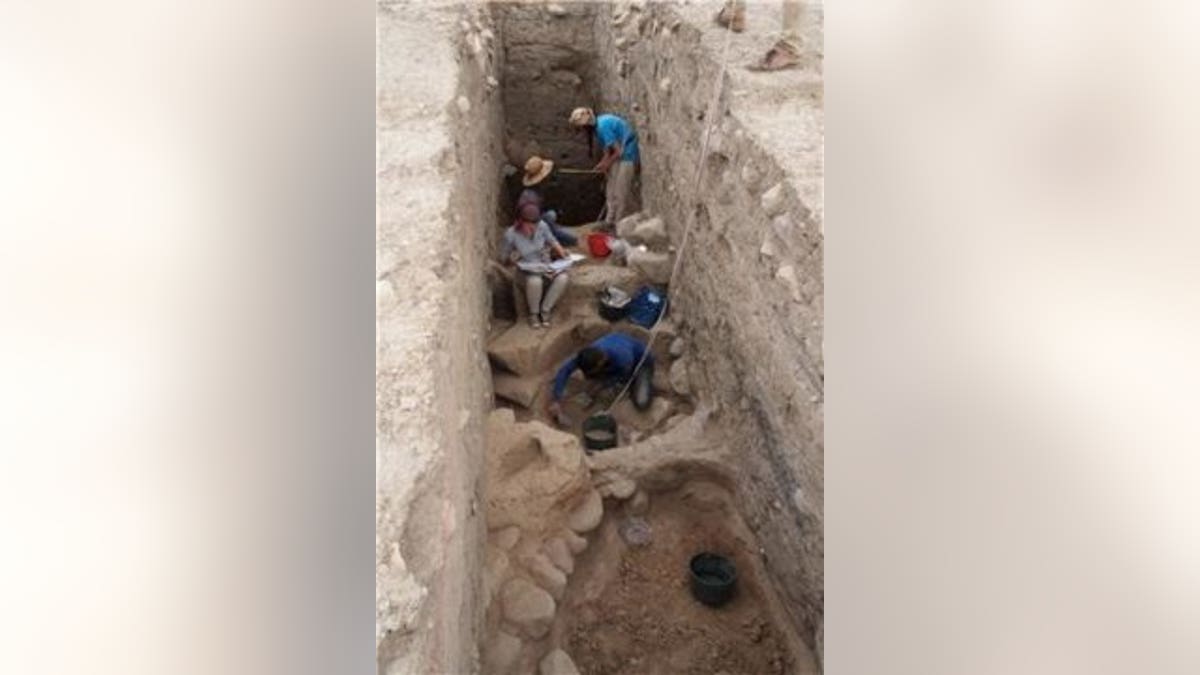
Excavating down to the Bronze Age layers in the upper part of Bassetki. (P. Pfälzner)
Working about 28 miles from ISIS-controlled territory in Iraq, researchers have discovered evidence of a large Bronze-Age city that dates approximately to the year 3,000 BC, according to the University of Tübingen in Germany.
Located near the town of Dohuk, Iraq, the city thrived for over a millennium, the university said; it had defensive walls around it by the year 2,700 BC, and also featured roads, residential areas, and a cemetery outside of the city. The excavation is at a Kurdish village called Bassetki.
“Despite the geographical proximity to [ISIS], there's a great deal of security and stability in the Kurdish autonomous areas in Iraq," Peter Pfälzner, the lead researcher behind the discovery and a professor at the University of Tübingen, said in a statement.
RARE, GOLD ROMAN COIN DISCOVERED IN JERUSALEM
The researchers also discovered pieces of tablets from about the year 1,300 BC— tablet fragments that imply that there was a temple to a Mesopotamian weather god, Adad, in the city, according to the university. They also found the suggestions of a “palatial building” from the Bronze Age, and said that this newly-discovered city was connected by roads to other settlements by around the year 1,800 BC.
The archaeologists found evidence of an ancient empire, too— the Akkadian Empire, which dates to the years 2340-2200 BC. The Kurdish village of Bassetki is where an Akkadian statue of a god-king named Naram-Sin was found in 1975, and the researchers behind this new discovery think that this site could have been an important part of this very old empire.
RUSSIAN SCIENTISTS UNEARTH REMAINS OF SECRET NAZI ARCTIC BASE
The lead archaeologist plans to do more digging in the area.
"The area around Bassetki is proving to be an unexpectedly rich cultural region, which was located at the crossroads of communication ways between the Mesopotamian, Syrian and Anatolian cultures during the Bronze Age,” Pfälzner said in the statement. “We're therefore planning to establish a long-term archeological research project in the region in conjunction with our Kurdish colleagues.”




















